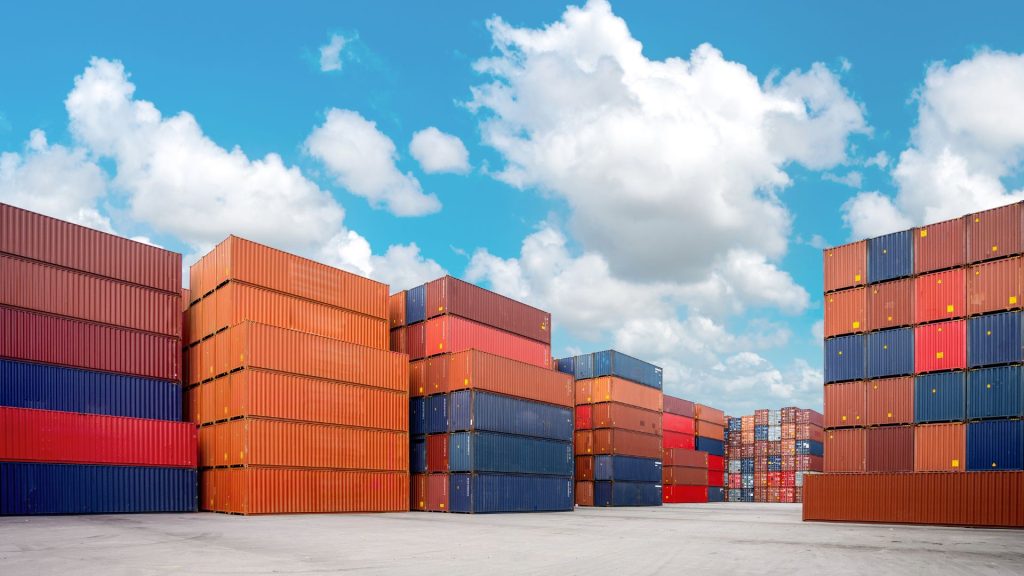Imports and exports are terms used in international trade to refer to the goods and services that countries trade with each other.
Imports refer to goods and services that are bought from foreign countries and brought into a country for consumption or use. Imports can include products such as raw materials, consumer goods, and capital goods. Countries may import goods for a variety of reasons, including to meet domestic demand, to access resources that are not available domestically, or to take advantage of lower prices or higher quality products in other countries.
Exports refer to goods and services that are produced within a country and sold to foreign countries. Exports can include products such as manufactured goods, agricultural products, and services such as financial and consulting services. Countries may export goods for a variety of reasons, including to generate income, to promote economic growth, or to access markets that are not available domestically.

Defining Imports and Exports
Imports involve the trading of goods or services across the border. The buyer identifies the seller internationally and orders the goods or services required. Imports involve different currencies as an exchange value for imported goods.
Exports also involve the trading of goods or services across the border. The seller identifies the buyer internationally and takes the order for goods or services required by the buyer. Exports involve different currencies as an exchange value for goods exported.
In both imports and exports, the buyers and sellers are required to follow the import and export-related laws and regulations. They need to ensure that payments for goods or services are made through the financial channel for transparency. Usually, the importers and exporters get involved in financial institutions, such as banks, to initiate and process the import and export documentation and payments.
An importer must open a letter of credit, also known as L/C, with its local bank. A bank’s involvement in opening the import L/C increases the credibility of the import and export transaction, going to happen between the importer and exporter.
Imports and exports involve different currencies. Therefore, imports and exports play a significant role in the country’s overall gross domestic product or GDP. Excess imports lead to an outflow of foreign currencies, which puts a burden on the foreign currency reserves maintained by the country to meet contingencies. On the other hand, excess exports play a very positive role in increasing the reserves and growth of the GDP.
Government authorities develop and implement policies that promote the culture of exports and discourage excessive imports. The economies of export-led countries flourish, contributing to their citizens’ welfare in different forms.

Similarly, the exporter, residing in another country, prepares and shows the export documentation, along with the import and export terms, to its local bank, for authentication purposes. The banks coordinate with each other to identify and verify the parties involved in the imports and exports of goods, such as the importer and exporter. This coordination process establishes a trust that the parties involved are genuine and do business for legitimate purposes. Banks are required to perform the due diligence and know your customer or KYC of all their customers.
Therefore, all trading customers are also identified and verified before onboarding and processing their trade-related activities and transactions.
As criminals try to find different avenues to transfer their illegal funds or black money from one location to another, they also try to explore trading businesses as a tool to transfer or hide their illegally earned money. Due diligence and KYC ensure that criminals, including money launderers and terrorists, are not onboarded as trading customers.
The bank’s involvement allows the importers and exporters to comply with local and international payment terms or foreign exchange laws and regulations. Government authorities, through the central banks, issue foreign exchange-related laws and regulations that local banks are required to follow; therefore, they ensure that trade-related activities are performed as per the applicable regulatory requirements.

Final Thoughts
Imports and exports are important components of international trade. Imports refer to the goods and services that a country purchases from other countries, while exports refer to the goods and services that a country sells to other countries. The balance of trade is the difference between a country’s exports and imports.
When a country imports more than it exports, it has a trade deficit, and when a country exports more than it imports, it has a trade surplus. Trade deficits can lead to a decrease in a country’s currency value and increase its debt to other countries. In contrast, trade surpluses can lead to an increase in a country’s currency value and improve its financial position.








